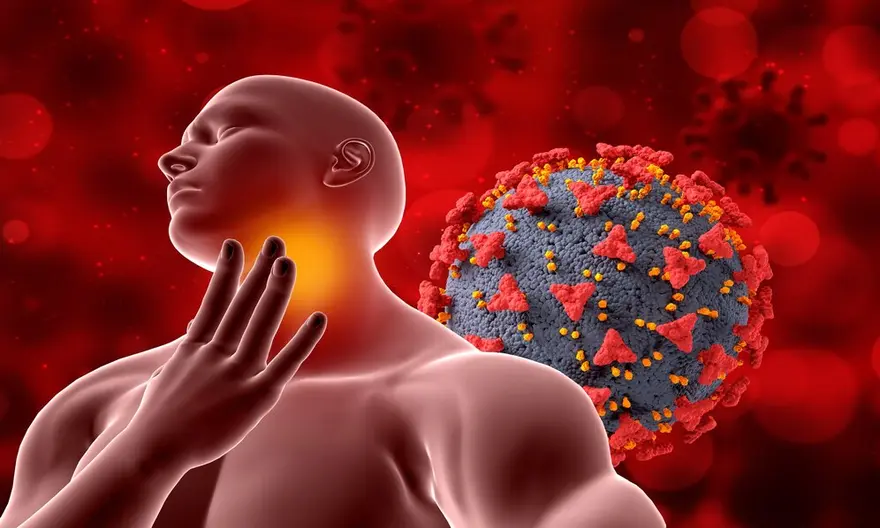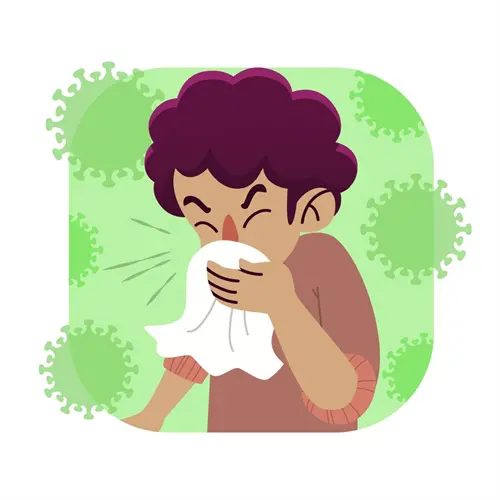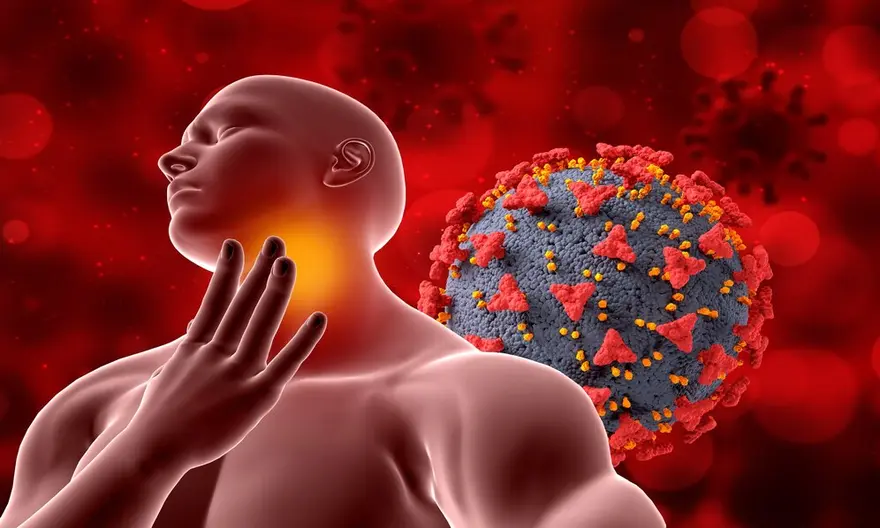Preventive Healthcare
Human Metapneumovirus (HMPV): Symptoms, Diagnosis, and Prevention
55034 Views
0

What is Human Metapneumovirus (HMPV)?
Human metapneumovirus (HMPV) is a virus belonging to the Pneumoviridae family, which also includes the respiratory syncytial virus (RSV). First identified in 2001 by Dutch researchers, HMPV has since been found to circulate worldwide. It causes respiratory infections ranging from mild cold-like illnesses to severe pneumonia, particularly affecting:
- Young children under 5 years old
- Older adults over 65
- People with compromised immune systems
Studies suggest that most people are infected with HMPV by age 5, but reinfections can occur throughout life.
Who is at Risk for HMPV?
While HMPV (Human Metapneumovirus) can affect people of all ages, certain groups are at higher risk for severe illness. These include:
- Infants and young children, particularly those under 5 years old
- Older adults, especially those over 65
- People with weakened immune systems, such as:
- Cancer patients undergoing chemotherapy
- Organ transplant recipients
- Those living with HIV/AIDS
- Individuals with chronic lung diseases like asthma or COPD, who may experience complications.
These groups should take extra precautions to avoid exposure to the human metapneumovirus.
Recent Outbreaks in China
Recent outbreaks of HMPV (Human Metapneumovirus) in China have raised concerns, especially with the virus spreading rapidly in northern provinces. The virus has predominantly affected individuals under 14 years old, leading to increased cases of respiratory illness. HMPV is a significant cause of respiratory infections in young children, individuals with weakened immune systems, and the elderly. While the virus poses a health risk, early detection and preventive measures are essential for controlling its spread.
With the virus spreading in countries like Malaysia, governments across the world, especially Asian countries like India, have placed various health protocols to deal with HMPV (Human Metapneumovirus).
What are the Symptoms of HMPV?
HMPV symptoms are similar to those of other respiratory viruses like influenza and RSV. However, the severity can vary based on age and overall health.
Symptoms in Adults
In healthy adults, HMPV symptoms are typically mild and may include:
- Runny or stuffy nose
- Sore throat
- Cough
- Low-grade fever
- Headache
However, older adults and those with compromised immunity may develop more severe HMPV symptoms such as:
- High fever
- Wheezing
- Difficulty breathing
- Pneumonia
Symptoms in Children
Young children with HMPV often experience symptoms similar to those seen in adults, but they may be more prone to lower respiratory tract involvement. Common HMPV symptoms in kids include:
- Cough
- Runny nose
- Fever
- Wheezing
- Difficulty breathing
- Vomiting
In severe cases, HMPV can lead to bronchiolitis (inflammation of the small airways) or pneumonia in children, sometimes requiring hospitalisation. Seek prompt medical care if your child has trouble breathing, a high fever, or worsening symptoms.
How is HMPV Transmitted or Spread?
Like other respiratory viruses, HMPV spreads through close contact with infected individuals or contaminated surfaces. The virus can be transmitted via:
- Respiratory droplets released when an infected person coughs or sneezes
- Direct contact, such as kissing, shaking hands, or caring for an ill person
- Touching contaminated surfaces and then touching your mouth, nose, or eyes
HMPV can survive on surfaces for several hours, facilitating its spread. The virus is most contagious during the first few days of illness when symptoms are at their peak.
How is Human Metapneumovirus Diagnosed?
Diagnosing HMPV involves a combination of clinical assessment and laboratory testing:
- Physical exam and patient history: Your doctor will evaluate your symptoms and ask about your recent exposure to ill individuals. They may listen to your lungs for signs of congestion or wheezing.
- Laboratory tests: To confirm the presence of HMPV, your doctor may order tests such as:
- RT-PCR (Reverse Transcription Polymerase Chain Reaction): This test detects the viral RNA in a sample, providing a reliable method for diagnosing HMPV.
- ELISA (Enzyme-Linked Immunosorbent Assay): This test identifies antibodies or viral antigens in the patient’s sample, confirming infection.
- Nucleic Acid Amplification Tests (NAAT): These tests are used to detect the viral genome and are sensitive for diagnosing HMPV.
- Immunofluorescence or Enzyme Immunoassays: These tests help detect viral antigens and can also confirm the presence of the virus.
- Additional testing: In severe cases requiring hospitalisation, your doctor may perform a bronchoscopy to obtain a sample of fluid from your lungs for further analysis.
What are the Complications Associated with HMPV?
While most people with HMPV experience mild symptoms, the virus can lead to severe complications, particularly in vulnerable populations such as infants, older adults, and individuals with weakened immune systems. Some potential complications include:
- Respiratory complications like bronchiolitis and pneumonia
- Acute respiratory distress syndrome (ARDS)
- Exacerbation of underlying conditions, such as asthma and chronic obstructive pulmonary disease (COPD)
- Secondary bacterial infections that can worsen the condition
Researchers estimate that about 10% to 12% of respiratory illnesses in children are caused by HMPV. While most cases are mild, around 5% to 16% of children will develop a lower respiratory tract infection like pneumonia. These complications highlight the importance of early detection and appropriate management to reduce severe outcomes.
How is Human Metapneumovirus Treated?
There is no specific treatment or cure for human metapneumovirus. HMPV treatment primarily focuses on managing symptoms and providing supportive care:
- Over-the-counter medications: Acetaminophen, ibuprofen, and decongestants can help alleviate symptoms like fever, pain, and congestion.
- Inhalers: If you experience wheezing or difficulty breathing, your doctor may prescribe temporary use of inhalers, such as inhaled corticosteroids.
- Oral steroids: In some cases, oral steroids like prednisone may be prescribed to reduce inflammation.
It's essential to consult your healthcare provider for personalised medical advice and HMPV treatment, especially if you or your child are at high risk for complications.
How can you prevent HMPV?
HMPV prevention involves general measures to reduce the transmission of respiratory viruses:
- Practice good hand hygiene
- Wash your hands frequently with soap and water for at least 20 seconds.
- Use an alcohol-based hand sanitiser when soap and water are not available.
- Avoid close contact with sick individuals
- Maintain a safe distance from people who are coughing or sneezing.
- If you are sick, stay home to avoid spreading the virus to others.
- Clean and disinfect surfaces regularly
- Wipe down frequently touched surfaces, such as doorknobs, light switches, and countertops, with a disinfectant.
- Follow general vaccination guidelines
- While there is no specific vaccine for HMPV, staying up-to-date with other respiratory virus vaccinations, such as the flu shot, can help reduce the overall burden of respiratory infections.
How long does HMPV last?
The duration of HMPV infection can vary depending on the severity of the case.
- Mild cases: Symptoms generally last for about 7-10 days but can sometimes persist for up to two weeks as the body recovers.
- Severe cases: In individuals with weakened immune systems or underlying health conditions, HMPV can lead to more severe symptoms that may last longer. In these instances, hospitalisation may be required for proper treatment and to monitor respiratory function.
The overall recovery time depends on the individual’s health status and the effectiveness of the treatment provided.
When to see a doctor?
You should contact a healthcare provider if you or your child experience symptoms of a respiratory infection and have an underlying condition that increases the risk of severe illness. Additionally, if symptoms don’t improve within a few days or if a fever lasts longer than three days, seek medical advice.
Visit the ER or seek immediate medical attention if you or your child experiences severe symptoms such as a high fever (over 103°F / 40°C), difficulty breathing, bluish skin, lips, or nails (cyanosis), or a worsening of other existing health conditions. Prompt care can prevent complications.
Conclusion
Human metapneumovirus (HMPV) is a significant cause of respiratory infections, particularly in vulnerable populations. By understanding the symptoms, diagnosis, and prevention strategies, you can take steps to protect yourself and your loved ones from this virus. If you suspect that you or a family member may have HMPV, don't hesitate to consult your healthcare provider for personalised advice and treatment.
At Metropolis Healthcare, we understand the importance of accurate and timely diagnosis in managing respiratory infections like human metapneumovirus (HMPV). Our team of qualified blood collection technicians can make at-home visits for blood samples, which are processed at our advanced diagnostic labs. With convenient online test reports and personalised care, Metropolis Healthcare is committed to empowering you to prioritise your health.
FAQs
How is HMPV different from other respiratory viruses like RSV or the flu?
HMPV is distinct from other respiratory viruses like RSV and the flu due to its unique genetic makeup. While it shares some similarities with RSV and the flu in terms of symptoms, HMPV belongs to the Pneumoviridae family, differentiating it from the families of viruses that cause RSV and the flu.
Why is Human Metapneumovirus (HMPV) in the news?
HMPV has garnered attention in recent weeks due to its significant impact on respiratory health in China and Malaysia, especially in young children and older adults. A few cases have now also been confirmed in India.
How do you know if you have HMPV?
The symptoms of HMPV are similar to those of other respiratory viruses, making it difficult to diagnose based on symptoms alone. If you experience cold-like symptoms, such as cough, fever, and nasal congestion, consult your healthcare provider for proper diagnosis and treatment.
Can HMPV last for weeks or months?
In most cases, HMPV symptoms resolve within a few weeks. However, in severe cases or in individuals with weakened immune systems, the illness can persist for longer periods and may require hospitalisation.
Do you need antibiotics for Human Metapneumovirus?
Antibiotics are not effective against viral infections like HMPV. Treatment primarily focuses on managing symptoms and providing supportive care. However, if you develop a secondary bacterial infection, your doctor may prescribe antibiotics.
What is the effect of HMPV on pregnant women?
Currently, there is limited research on the direct effect of HMPV on pregnant women. However, as with other respiratory infections, pregnant women with weakened immune systems or underlying health conditions may experience more severe symptoms and require closer monitoring and care.
How does HMPV affect children?
HMPV can cause severe symptoms in children, including breathlessness, wheezing, persistent cough, high fever, and poor feeding. Infants are particularly vulnerable and may experience dehydration. These symptoms can lead to hospitalisation, especially in younger children or those with underlying health conditions.
Can you get HMPV more than once?
Yes, immunity from an HMPV infection is temporary, and reinfections are possible, particularly as the virus undergoes mutations, making individuals more susceptible to subsequent infections.
Where did HMPV come from?
HMPV (Human Metapneumovirus) was first identified in the Netherlands in 2001. It is believed to have originated in birds before adapting to infect humans. Genetic studies suggest that HMPV likely circulated among humans for decades prior to its discovery.
When should I get tested for HMPV?
You should get tested for HMPV if you or your child experience respiratory symptoms like cough, fever, or difficulty breathing, especially if you have underlying health conditions, or if symptoms worsen or don’t improve within a few days.
Related Tests
Tests related to the topic
























 WhatsApp
WhatsApp